Finding the best CPU for music production can be difficult if you don’t know what to look for.
Many producers know how frustrating and time-consuming it can be to deal with a weak processor.
CPU overload, lags, freezes. These issues slow down your workflow and kill creativity.
Based on CPU performance tests, we’ll provide a list of the top 12 CPUs (plus computers built using these CPUs).
Once you finish reading, you’ll be able to look at any list of the “top computers for music production” and know which ones are a good option.
Overview
Top Laptop CPUs
Best Apple CPU – 10 Core M1 Pro/Max
Best PC CPU – Ryzen 9 5900HX
Top Desktop CPUs
Best Overall – Ryzen 9 5950X
Best Value – Intel Core i5-12600K
Top 12 CPUs for Music Production: How this List is Organized
This list will assist you whether you’re shopping for a new computer and purchasing a CPU separately to build a PC.
The first seven options are the best laptop CPUs for music production.
And the next five are the best desktop CPUs.
How to Analyze and Compare Processors: Passmark (CPU Benchmark)
We rank the following CPUs using Passmark CPU benchmark scores.
Passmark uses multiple performance tests to rate and compare different processors.
This list is based on overall CPU score, single-thread performance, and price/performance ratio.
Best Laptop CPUs for Music Production
Best CPUs for Mac
1. Apple Silicon 10 Core M1 Pro / Max
Found in 14 & 16-inch MacBook Pro
CPU Score = 23,500
Single-Thread Performance = 3,850
2. Apple Silicon 8 Core M1 Pro
Found in 14-inch MacBook Pro
CPU Score = 18,200
Single-Thread Performance = 3,800
Best CPUs for PC
1. Ryzen 9 5900HX
Found in ASUS ROG Strix G15
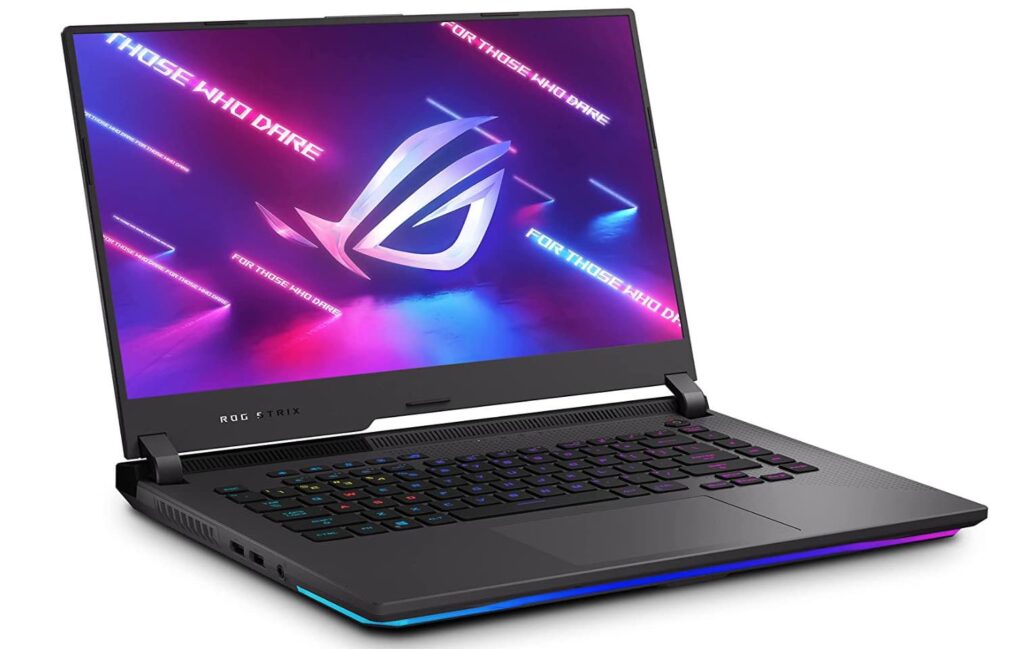
CPU Score = 23,200
Single-Thread Performance = 3,200
2. Intel Core i7-11800H / i7-11850H
Found in 2021 ASUS ROG Zephyrus
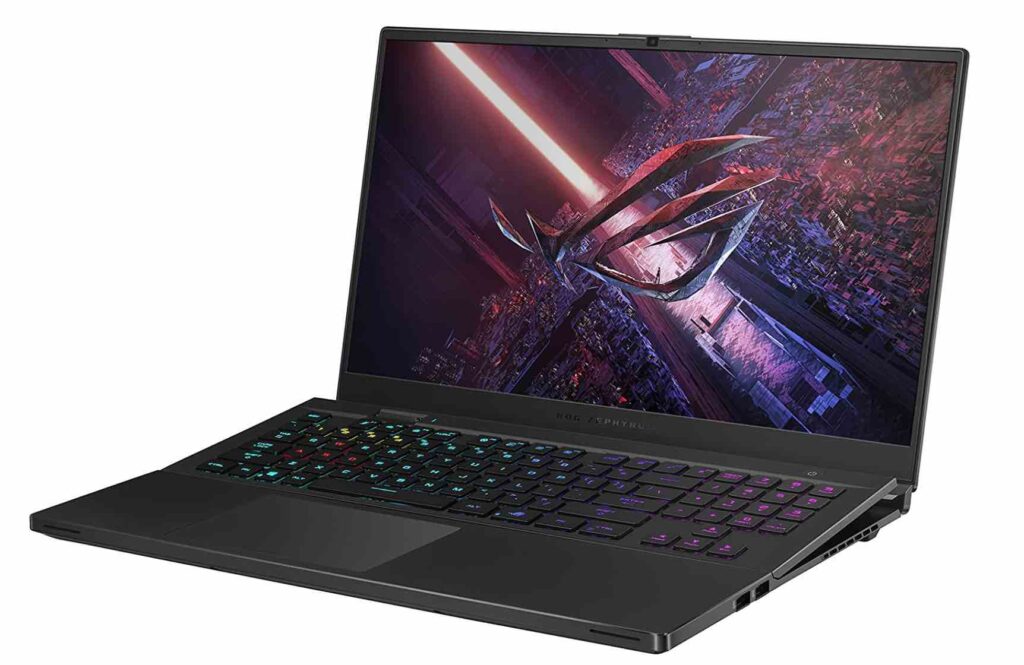
CPU Score = 21,600
Single-Thread Performance = 3,150
3. Ryzen 7 5800H
Found in Lenovo Legion 5 Flagship 17
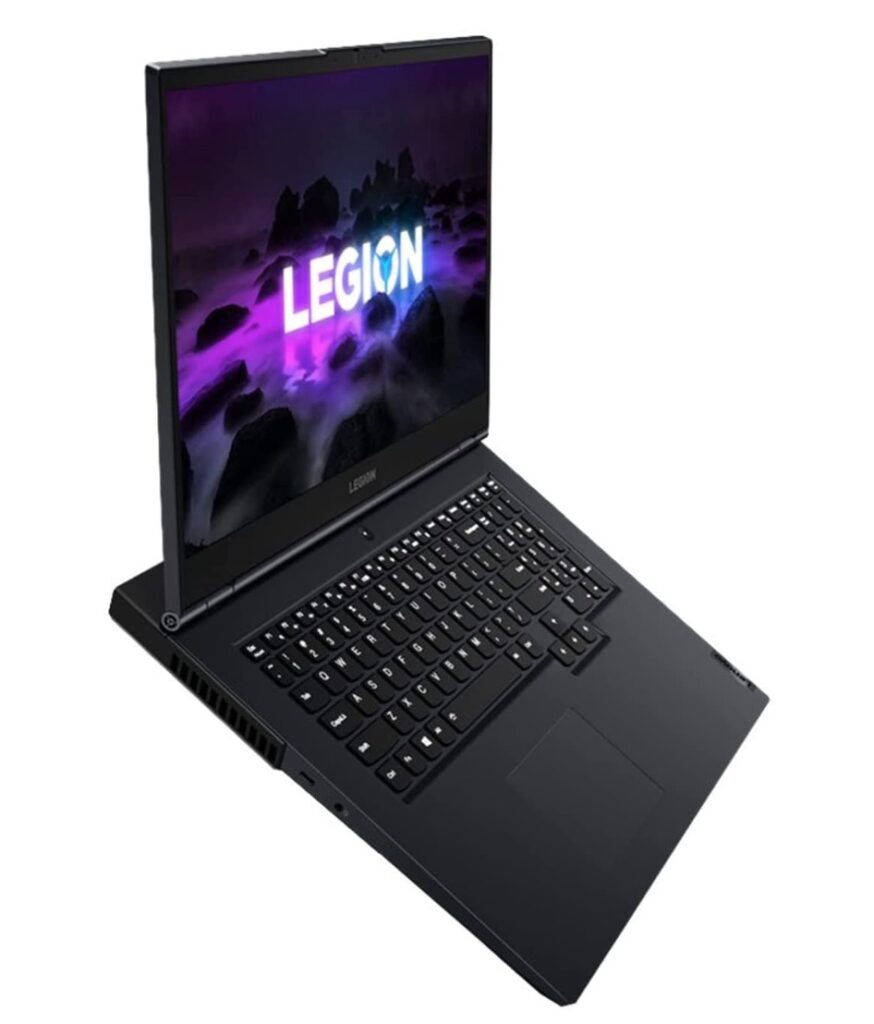
CPU Score = 21,500
Single-Thread Performance = 3,100
4. Intel Core i9-11900H
Found in Asus ROG 16″ WQXGA
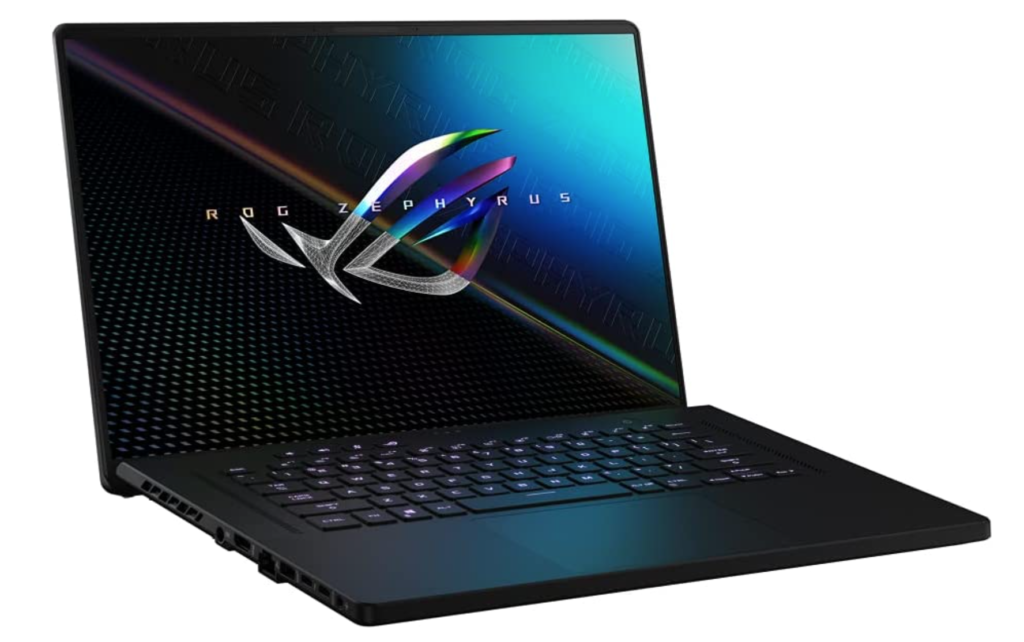
CPU Score = 21,900
Single-Thread Performance = 3,200
5. Ryzen 7 4800H
Found in 2021 ASUS ROG Strix G17
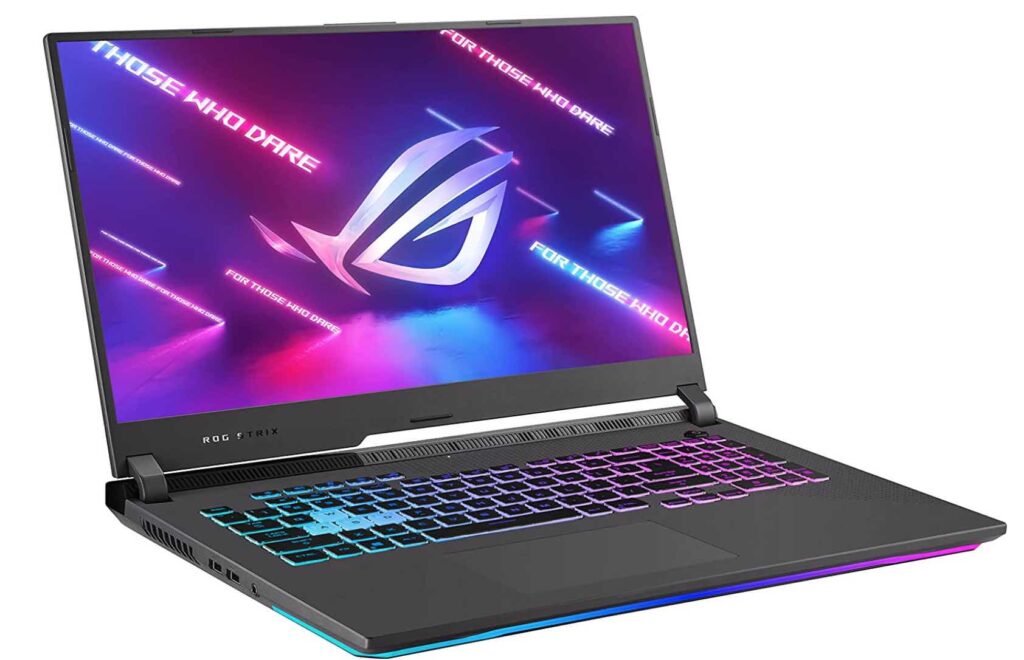
ASUS ROG Strix G17 Gaming Laptop
CPU Score = 19,100
Single-Thread Performance = 2,600
Best Desktop CPUs for Music Production
Best Overall
1. Ryzen 9 5950X
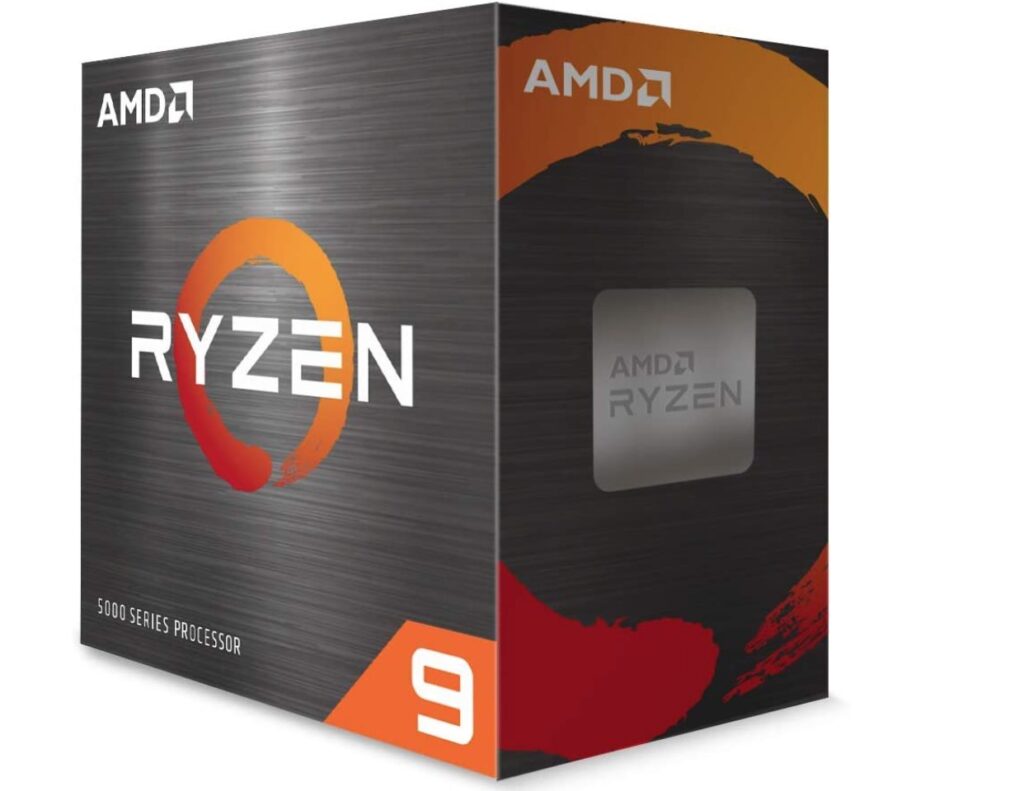
Found in Alienware Aurora R14
CPU Price: $700
CPU Score = 46,000
Single-Thread Performance = 3,500
Price Performance Rating = 67
2. Intel Core i9-12900KF
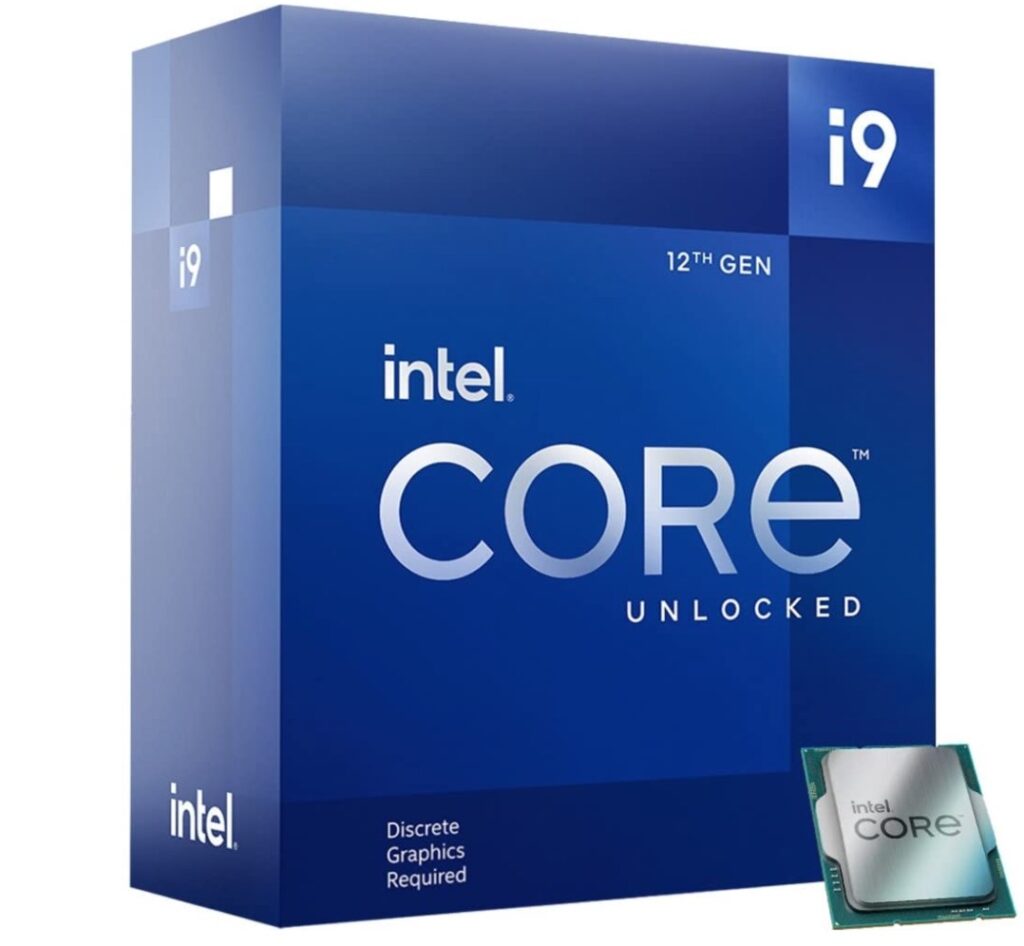
Found in CyberPowerPC
CPU Price: $650
CPU Score = 40,800
Single-Thread Performance = 4,250
Price Performance Rating = 67
Best Value
1. Intel Core i5-12600K
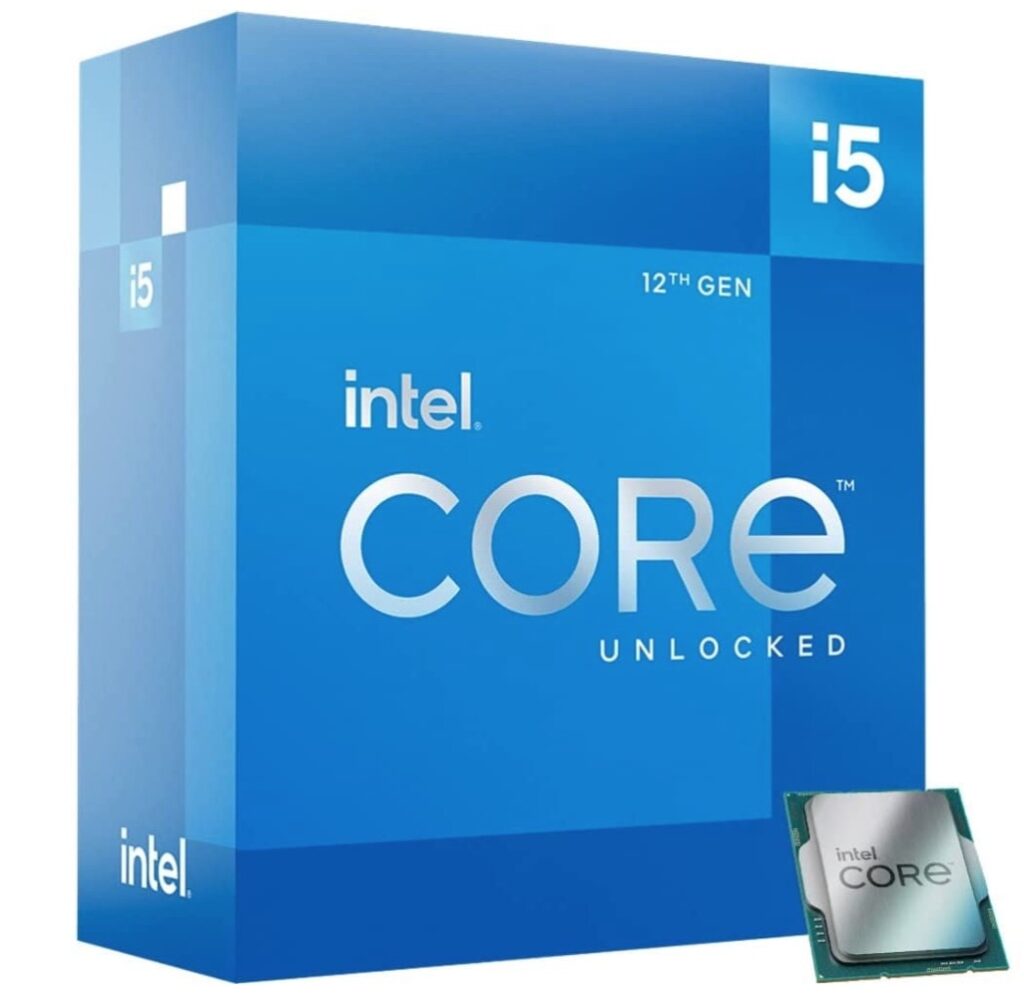
Found in CyberPowerPC
CPU Price: $300
CPU Score = 27,000
Single-Thread Performance = 4,000
Price Performance Rating = 91
2. Intel Core i7-12700KF
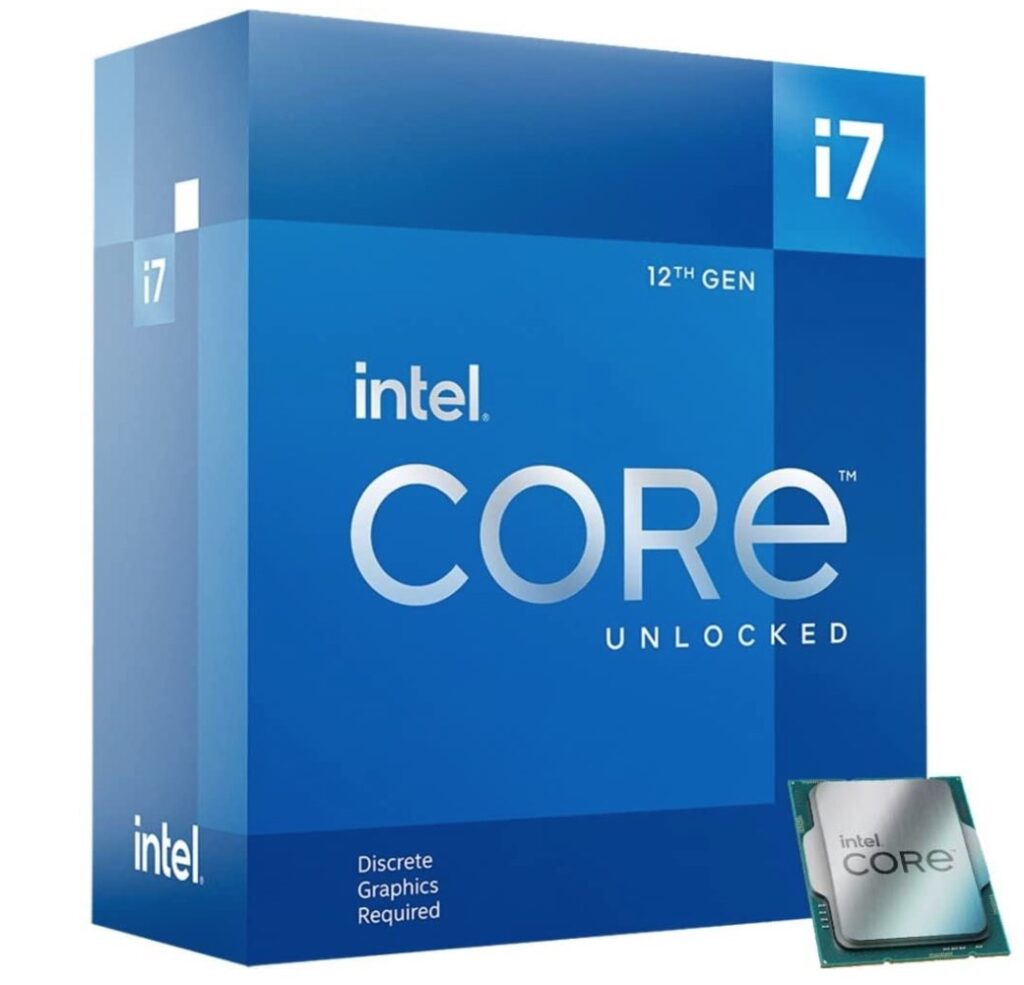
Found in CyberPowerPC
CPU Price: $400
CPU Score: 33,500
Single-Thread Performance = 4,000
Price Performance Rating = 85
3. AMD Ryzen 7 5800X
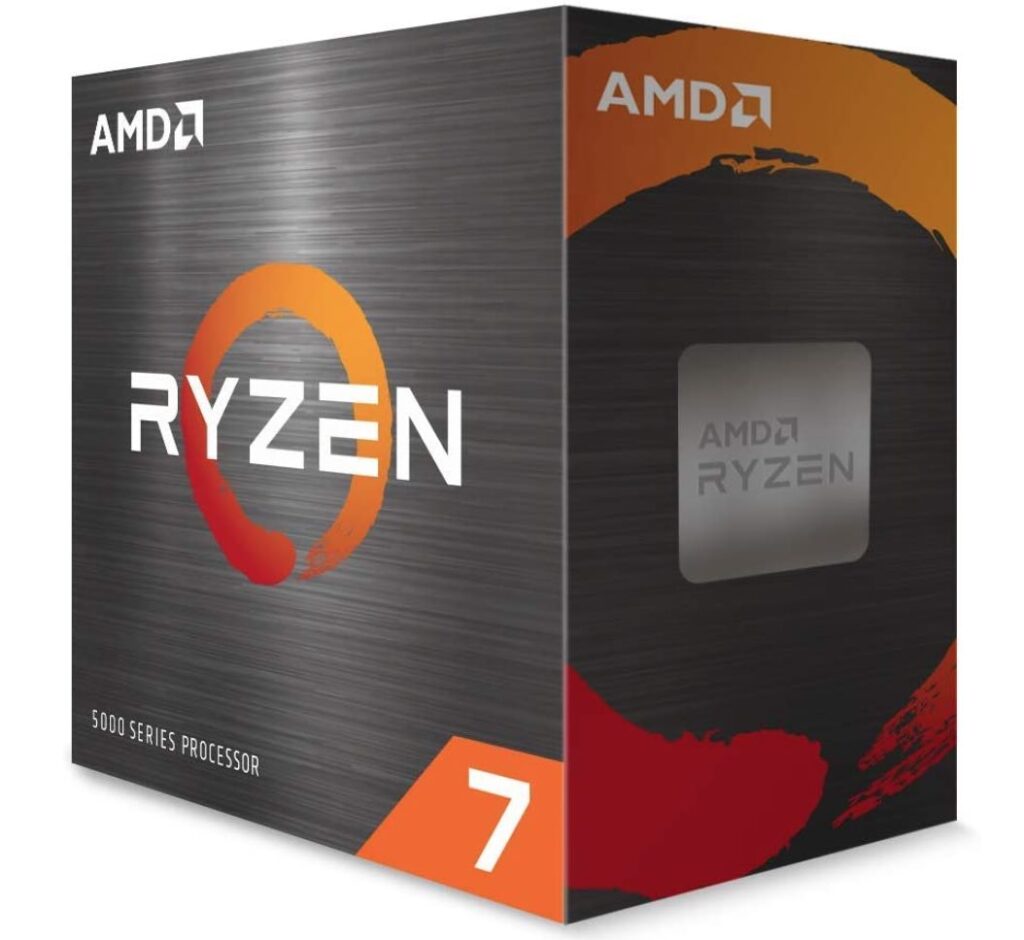
Found in HP OMEN
CPU Price: $350
CPU Score = 28,500
Single-Thread Performance = 3,500
Price Performance Rating = 81
CPU Overview
The central processing unit (CPU) is the brain of a computer.
It sends signals to other parts of the computer to perform specific tasks.
A computer is more efficient at receiving instructions and completing tasks when it has a fast and powerful processor.
Why is CPU Important for Music Production?
Have you ever wondered why your DAW starts lagging after loading too many with plug-ins and VSTs?
These lags arise when your computer is trying to process more information than it can handle, aka CPU overload.
You can reduce your CPU usage by rendering your MIDI to audio or closing unnecessary programs.
However, troubleshooting your CPU problems is time-consuming and can stunt your creativity.
The best way to address consistent CPU problems is to ensure your processor is powerful enough to handle your workload.
Desktop CPUs vs. Laptop CPUs
The best desktop CPUs will perform better than top laptop CPUs overall.
Desktops have bigger and better cooling systems allowing their CPUs to achieve higher speed and performance without overheating.
As a result, a desktop will generally be more powerful than a laptop at the same price point.
[Read more for a comparison between desktops vs laptops for music production]
How to Find the Best CPU for Music Production
Clock Speed
The higher the clock speed, the better.
Clock speed (measured in GHz) is the rate at which your computer can receive instructions and give commands (or process information).
For instance, 2.0 GHz of clock speed means your computer can handle 2 billion instructions per second.
The best CPUs for music production will have at least 2.0 GHz of clock speed, ideally closer to 3.0 GHz.
What’s a Core?
Generally, the more cores your computer has, the better it is at multitasking.
A core is a single processor within a CPU.
Therefore, a multi-core CPU has several processors in one unit.
As a result, multi-core processors can divide tasks between cores for better efficiency.
The standard in music production is a CPU with at least four cores.
Overall, you’ll want as many cores with the highest single-core performance as you can afford.
[Learn more about single-core and multi-core performance for music production]
AMD Ryzen vs. Intel Core
Intel has been the go-to manufacturer for top-quality CPUs for well over a decade.
However, that has changed with the introduction of Ryzen processors by AMD.
Some people now believe Ryzen is the best option for PC CPUs overall.
Intel Overview
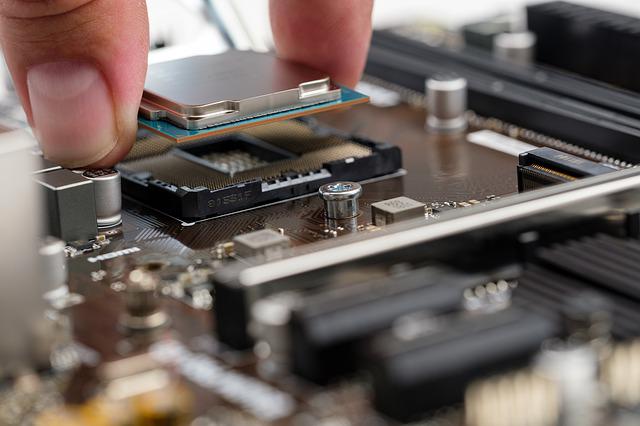
The Intel Core product line for consumer-based CPUs includes the Core i3, i5, i7, and i9.
Essentially, these are brand names that represent families of different processors.
Within each family are sets of CPUs within various generations (i.e., 11th generation i7 or 12th generation i7).
Each generation includes a number of CPU models with different features (cores, clock speed, cache, etc.).
AMD Ryzen Overview
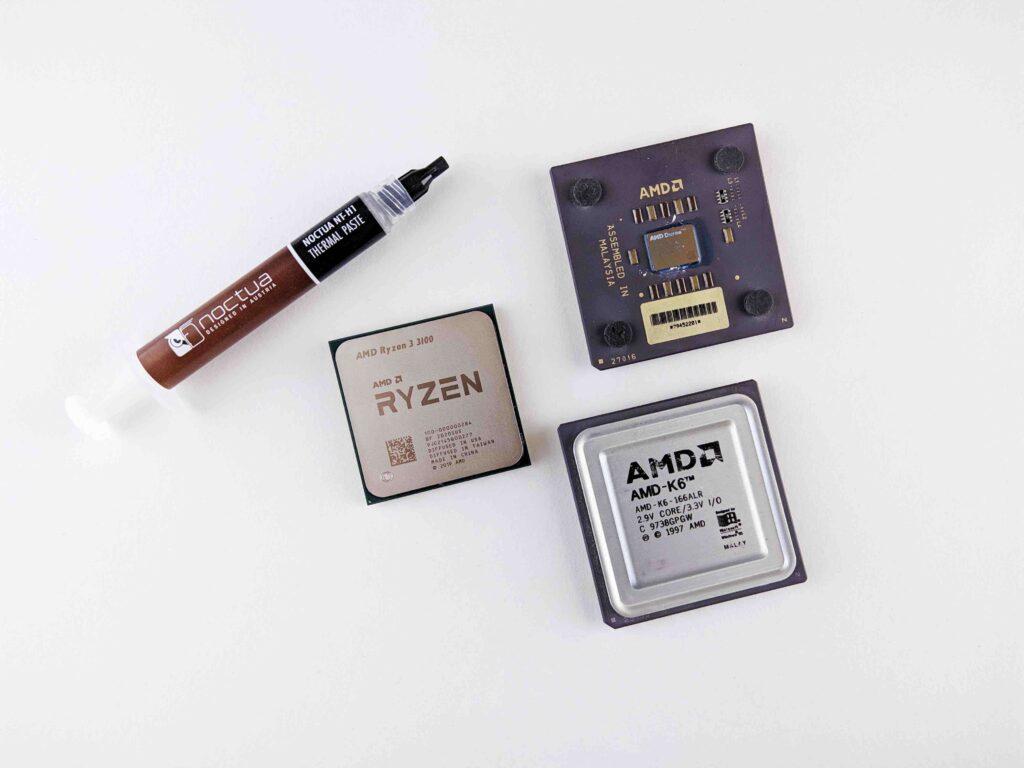
AMD Ryzen has a similar naming system: Ryzen 3, 5, 7, and 9.
Within these families are multiple series of processors.
For example, the Ryzen 7 5950 is a part of the 5000 series, and the Ryzen 7 4800H is a part of the 4000 series.
In general, these numbers are a way to categorize each processor and release newer versions with better features.
Which is Better: Intel or Ryzen
Ryzen processors tend to be better at multitasking, while Intel CPUs offer better single-core performance (especially 12th generation Intel).
Overall, Ryzen is the best option for PC processors based on price and performance.
Apple Silicon (M1 Chip): Is it Better than Intel and Ryzen?
The M1 chip, also know as a “system on a chip” (SoC), is designed to achieve high levels of CPU performance with unprecedented levels of energy/power consumption.
Before the release of the M1 Chip, all Mac computers were built using Intel processors.
Since 2020, Apple has introduced a series of Mac computers with M1, M1 Pro, and M1 Max chips.
M1 laptops offer better single-thread performance than Intel and Ryzen based laptops.
In addition, the M1 Pro and M1 Max chips (only found in 14 and 16-inch MacBook Pro editions) outperform all laptop CPUs on this list in terms of overall CPU score.
The 24-inch iMac is currently the only desktop that includes an M1 chip. Apple iMacs currently don’t support M1 Pro and Max chips.
As a result, AMD and Intel CPUs are still better options for desktops.
Understanding Processor Product Numbers
Each processor within Intel and AMD has a unique product/model number.
You’ll need to understand how to read product numbers to find your ideal CPU.
If you’re shopping for CPUs or looking at a computer’s specs, you’ll see a product number: Intel Core i7-1165G7.
Here’s a breakdown of how to interpret this product number.
Brand Modifier (i7-1165G7)
Intel Core i3, i5, i7, and i9 are brand modifiers.
Generally, the i3 processors will be the weakest while i9s offer the highest performance levels and additional features.
Generation (i7-1165G7)
The first digit or two after the brand modifier represents a particular generation.
For example, an Intel Core i7-1165G7 is an 11th-generation i7 processor.
The i7-10700 is a 10th-generation i7 processor.
Each generation is an improved version of the previous.
SKU Number (i7-1165G7)
You can use SKUs to compare processors within the same generation.
CPUs with higher SKU numbers within the same generation have better features.
For example, the Intel Core i7-1160G7 has a clock speed of up to 4.40 GHz, while the Intel Core i7-1165G7 has a clock speed of up to 4.70 GHz.
Suffix (i7-1165G7)
The SKU suffix provides more information about a processor’s capabilities.
Each suffix indicates a unique feature.
For example, G7 indicates optimal graphics performance.
The suffix K stands for “unlocked,” or overclocking.
The product numbers for Ryzen are similar to Intel.
Once you know how to read Intel product numbers, understanding Ryzen numbers is pretty straightforward.
In general, these details give you more information about the quality of a particular processor.
Another Way to Analyze and Compare Processors: Geekbench
Along with Passmark, Geekbench is another CPU benchmark thats great for comparing processors.
It allows you to compare single and multi-core performance.
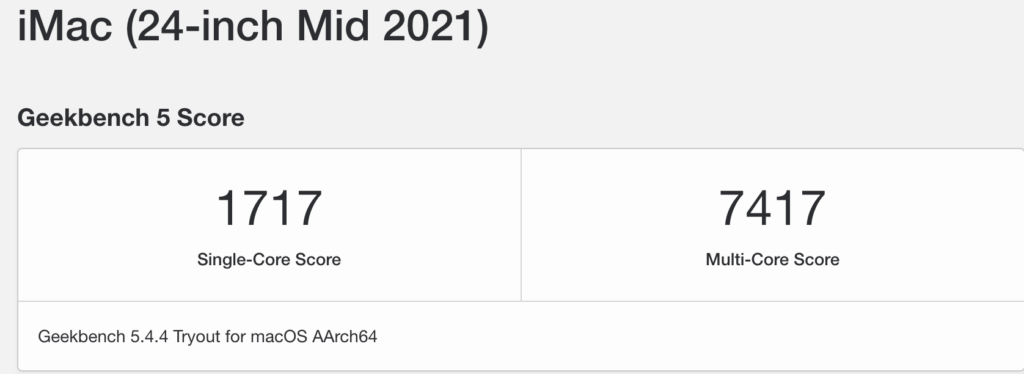
Takeaway: Finding the Best CPU for Music Production
There’s plenty of great CPUs to choose from.
Whether you’re searching for a new computer or building a PC from scratch, the number of options can be overwhelming.
Using this framework, you’ll be able to identify a few processors within your budget.
From there, you can make an educated decision on which is ideal for your situation.








